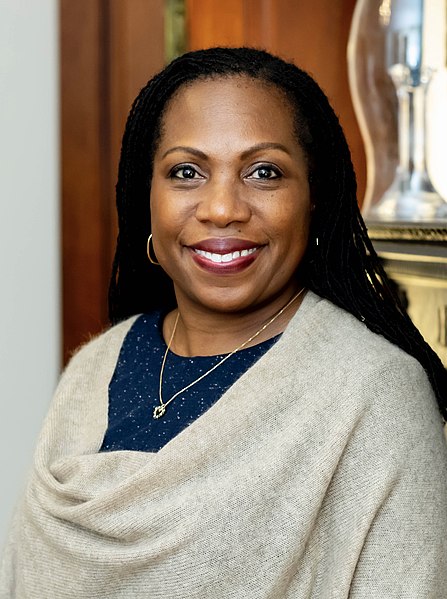
Following a disastrous two weeks of Supreme Court rulings, one bright judicial spot was the swearing-in today of Ketanji Brown Jackson to the U.S. Supreme Court.
“This provides a much-needed ray of hope,” comments Annie Laurie Gaylor, FFRF co-president.
Brown Jackson is the first Black woman to serve on the court, helping to alleviate the massive divide between the court’s makeup and the makeup of the country whose rights the court is tasked with protecting. With a strong track record as a public defender, followed by years as a trial judge before being appointed to the prestigious appeals court, Brown Jackson stands as a strong example of what a Supreme Court justice should be. Brown Jackson adds a second Black justice, and the fourth woman, to the high court.
FFRF supported Brown Jackson’s confirmation, noting her strong record on civil and human rights. Joining a court that has struck multiple blows to this fundamental right in the past week, Brown Jackson will need to stand firm in defense of every American’s right to a secular government.
FFRF had urged the Senate Judiciary Committee to raise the topic of the Establishment Clause and was gratified by her remark under oath that “the Establishment Clause — which prevents the government from preferring religion over another — is foundational.” She added, “It is the principle that many people originally came to this country, when it was founded, in order to support. It was people who fled from religious persecution and wanted to found a country in which everyone could believe what they wanted, and not have the government encroach on, impinge on, burden that right. It is a core foundational right. It is in the First Amendment.”
Her remark contrasts greatly with that of Supreme Court Justice Neil Gorsuch during oral arguments in the Boston Christian flag case earlier this spring, when he derided “the so-called separation of church and state.” In a dissent last week in the school voucher case, Justice Sonia Sotomayor, in warning that the Free Exercise Clause was being elevated at the expense of the Establishment Clause, stated, “Today, the Court leads us to a place where separation of church and state becomes a constitutional violation.”
Replacing Justice Stephen Breyer, for whom she clerked, Brown Jackson will find herself in the minority on many crucial issues for the foreseeable future. Still, her confirmation fortifies the bloc of justices who are standing up for our foundational rights.
FFRF has been sounding the alarm about the extremist takeover of the high court, calling for Congress to enact badly needed court reform. The Supreme Court has been packed with extremist religious ideologues, through a process of abusing procedure and ignoring long-established norms. Congress is capable of correcting this disfiguring of our highest court, and should do so immediately to safeguard the crucial institution and stop the bleeding.
“It is always darkest just before the dawn,” FFRF Legal Director Rebecca Markert reminds those dismayed by the court’s recent extremist decisions. “Let’s take a moment to appreciate what may be the first light over the horizon, and commit to the long fight ahead, to restore and strengthen our cherished constitutional rights.”
The Freedom From Religion Foundation, with more than 36,000 members, in the nation’s largest association of freethinkers (atheists and agnostics) and works as a diligent church/state watchdog.

